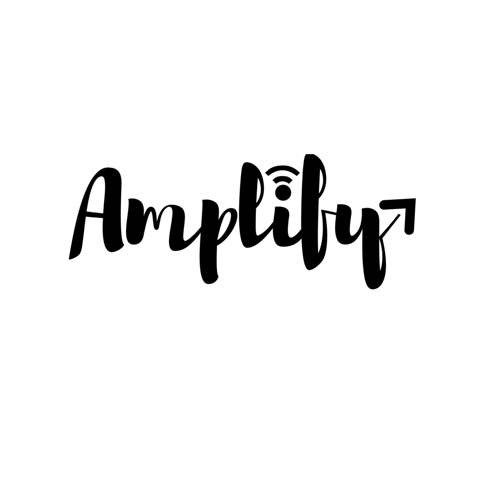Carolyn M. Gaspar
PhD Candidate
Carolyn M. Gaspar is currently pursuing doctoral studies in the Faculty of Health at Dalhousie University. She also is an Independent Youth Development Research Consultant. Her research is in the areas of health equity, health professional education, community development, and transformative youth empowerment programs. She believes in empowerment as a facilitator of hope to influence transformational change through authentic engagement. Her graduate studies research co-examined empowerment as a facilitator to address the United Nations Sustainable Development Goals, particularly poverty, health and wellness, inequities, and gender equality, by examining empowerment from a First Nation community perspective. She advocates for localized community development as research has shown that sustainable health equity initiatives are co-designed and co-developed with the local community members. Given her experience, Ms. Gaspar has participated in international professional development and official delegations for her advocacy of youth involvement in the co-creation of research, policy, and program development. She is passionate about serving as a mentor to build the capacity of future leaders. Carolyn is a transformational visionary team leader inspiring change in individuals, organizations, groups, and communities through collaborative processes while respecting cultural diversity.
In Carolyn’s words:
Growing up in Thunder Bay, Ontario, you see the health and social disparities that exist within society. Attending high school next to Dennis Franklin Cromarty high school, an Indigenous high school, for youth from rural and remote areas, you see how ignorant people can be towards Indigenous peoples. This experience fuelled a passion in me to work with Indigenous communities to address Indigenous health equity. Specifically for Indigenous youth by supporting them to transform and develop their social skills to break the cycle of violence and intergenerational trauma. During my Master's Degree, I worked with a First Nation community to implement a Youth Centre - driven by youth for youth - to create a psychologically and physically safe space for youth to talk about their experiences and provide peer support. Since then, I have stayed in contact with many of the youth to provide guidance and support as needed for employment and/or educational opportunities. As a PhD candidate, I still address Indigenous health equity, but from a different angle, the healthcare providers' beliefs and behaviors towards the causal attributions of disparities. As a non-Indigenous person, I reflect on my educational background and the limited informative content I have had on the real history of Canada and the effects of historical and ongoing colonialism. However, I am fortunate to have a mom who is a trained Social Worker and who instilled curiosity and compassion in me as a child and took the time to teach me about social disparities. My role and responsibility as an ally are to help educate non-Indigenous people through anti-oppressive tools to achieve critical consciousness to reflect and act upon systems of oppression and privilege.
-
What are you most proud of professionally? And who or why?
My proudest professional moment was the opening of a youth-driven Youth Centre in Central Saskatchewan. I worked with First Nation youth to co-develop and co-launch a Youth Centre in their community to act as a brave space to access mental health services. Through authentic engagement and tenacity, we were able to develop a Youth Wellness committee to help in the implementation and guide decision making of the Youth Centre from the location to the programming. As an outsider to the community, this wasn't an easy task, but I was able to build trusting relationships with the youth and community members. 3 years later and the Youth Centre is still operating by youth for youth.
What’s your vision for Atlantic Canada in 10 years? What’s our biggest opportunity now?
To listen to youth, they are our greatest hope for the future. They will be the change agents to achieving an equitable, diverse and inclusive society.
What was your greatest stage of growth? What made it a shift for you?
The most significant stage of growth for me was when I had to advocate for how research ought to be with Indigenous youth in Canada, given our colonial past and the ongoing social and health disparities they experience. I realized the strength of my voice as an ally and the power I carry; so, I couldn't be complacent at the research or policy tables. I needed to advocate for the change I wanted to see in how research is done with youth but also needed to help amplify their voices to ensure the authentic inclusion of youth voices in decision-making processes.
What’s your favourite or most read book or podcast? Now or at each of your greatest stages of growth?
My favourite books are Pedagogy of Hope (Paulo Freire), Brain on Fire (Susannah Cahalan), and Seven Fallen Feathers (Tanya Talaga). Each for a different reason. Pedagogy of Hope reminds me not to be focused on oppression but to transform and focus on opportunities for growth and change. Brain on Fire is a captivating read about a courageous woman. Seven Fallen Feathers is about my home town and the stories that need to be heard about the painful truths.
What’s your deepest learning from this past year? How did/will you apply it?
Patience, you will get to the destination when and how you were supposed to.
Who’s inspired you, directly or indirectly? How have they inspired you?
The youth - words cannot describe how they have inspired me. Their spirit and hope for a better society is motivational.
What would you have done differently?
Nothing, everything happens for a reason with each success and challenge comes a learning opportunity.
What are the principles you live by?
The principles I live by are: Humility, laughter, social compassion, and empathy.
-
Researcher, Youth Advocate, Health Policy, Traveller, Ship Watcher
